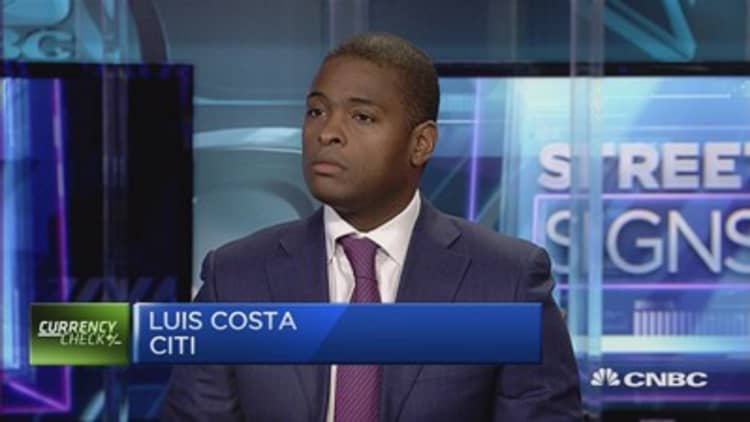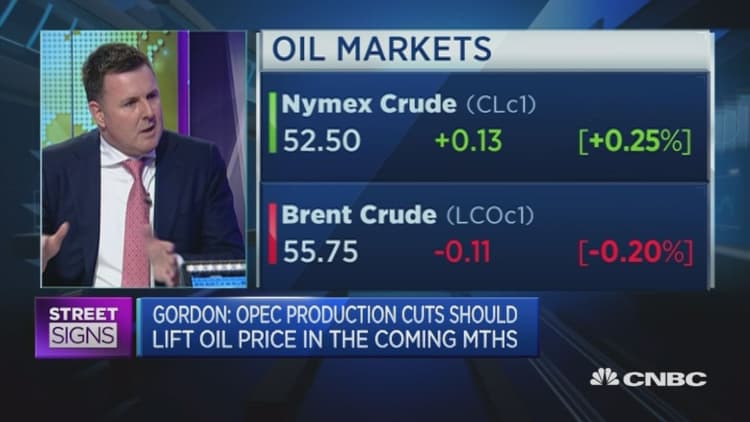While Brexit and the U.S. election dominated headlines in 2016, the African continent witnessed major changes of its own.
Its two largest economies were destabilized, with Nigeria being driven into recession and the South African political elite grappling for power. Conflict continued to make news, with the continuation of people trafficking across the Mediterranean and violence in South Sudan bubbling over.
With the global narrative of uncertainty continuing to spin out in 2017, how will Africa fare?

Macroeconomic concerns
Growth in Sub-Saharan Africa fell to 1.5 percent in 2016 according to the World Bank, which deemed this "the weakest pace in over two decades." The slowdown was chiefly blamed on low commodity prices. But, the organization forecasts growth of 2.9 percent in the region for 2017.
Africa's two biggest economies have a lot to account for in 2017. South Africa risks being downgraded to "junk" status by credit ratings agencies and has been dogged by scandal surrounding Finance Minister Pravin Gordhan, who has been the subject of a police investigation into his alleged involvement in a spy unit targeting President Jacob Zuma. The rand slid sharply against the dollar when news of Gordhan's summons by police broke in August 2016. The World Bank expects South African growth to "edge up to a 1.1 percent pace his year."
Meanwhile, Nigeria entered recession in 2016 with its gross domestic product (GDP) contracting for the first three-quarters of the year. This was blamed on falling oil prices, though the country also faces issues with its precarious foreign reserves. But, the World Bank expects the country's GDP to grow one percent in 2017.
Oil
How will the Africa's oil economy fare after OPEC and non-OPEC producers agreed late last year to cut supply in an attempt to boost prices?
One analyst CNBC asked was skeptical. The cut "will not have much impact," argued Alex Vines, head of the Africa program at Chatham House. He cited the example of OPEC-member Angola, which has previously ignored cuts. Vines did add that hardened oil prices would help producers on the continent including Chad, Gabon and Nigeria.
Political transition
Africa's gradual shift away from long-term, strongman leaders is gathering pace. Currently dominating headlines is the transition of power in Gambia. Former President Yahya Jammeh initially refused to concede defeat to his rival, Adama Barrow, following an election last month. Jammeh only stepped aside on Friday following diplomatic and military intervention from neighboring countries, and after his political opponent's official inauguration. It was widely reported Monday that an aide to Barrow announced that over $11 million was missing from the Gambian government coffers.
Question marks also linger over current heads of state and their power to stem instability. It remains to be seen whether Nigerian President Muhammadu Buhari will successfully control Islamic extremist group Boko Haram and militants in the oil-rich Niger Delta. Also, the prospects for peace in Libya and South Sudan appear dim.

The Trump effect
U.S. President Donald Trump's protectionist rhetoric has largely been fired off in the direction of China. But, his viewpoint could spell bad news for emerging markets across the globe.
The World Bank, in its "Global Economic Prospects: Sub-Saharan Africa" note, wrote that policy uncertainty from the U.S. could bring about "higher borrowing costs or cut off capital flows to emerging and frontier markets." It added that this could negatively impact heavily traded currencies such as the South African rand.
Razia Khan, regional head of economics for Africa at Standard Chartered Bank, wrote on analysis website African Arguments that "a slowdown in global trade … could hurt (emerging markets') demand for Africa's export commodities." She used this point to emphasize the importance of a kind of Africa-led protectionism in response, writing that it was "important (for) African economies (to) start trading more among themselves."
Follow CNBC International on Twitter and Facebook.

